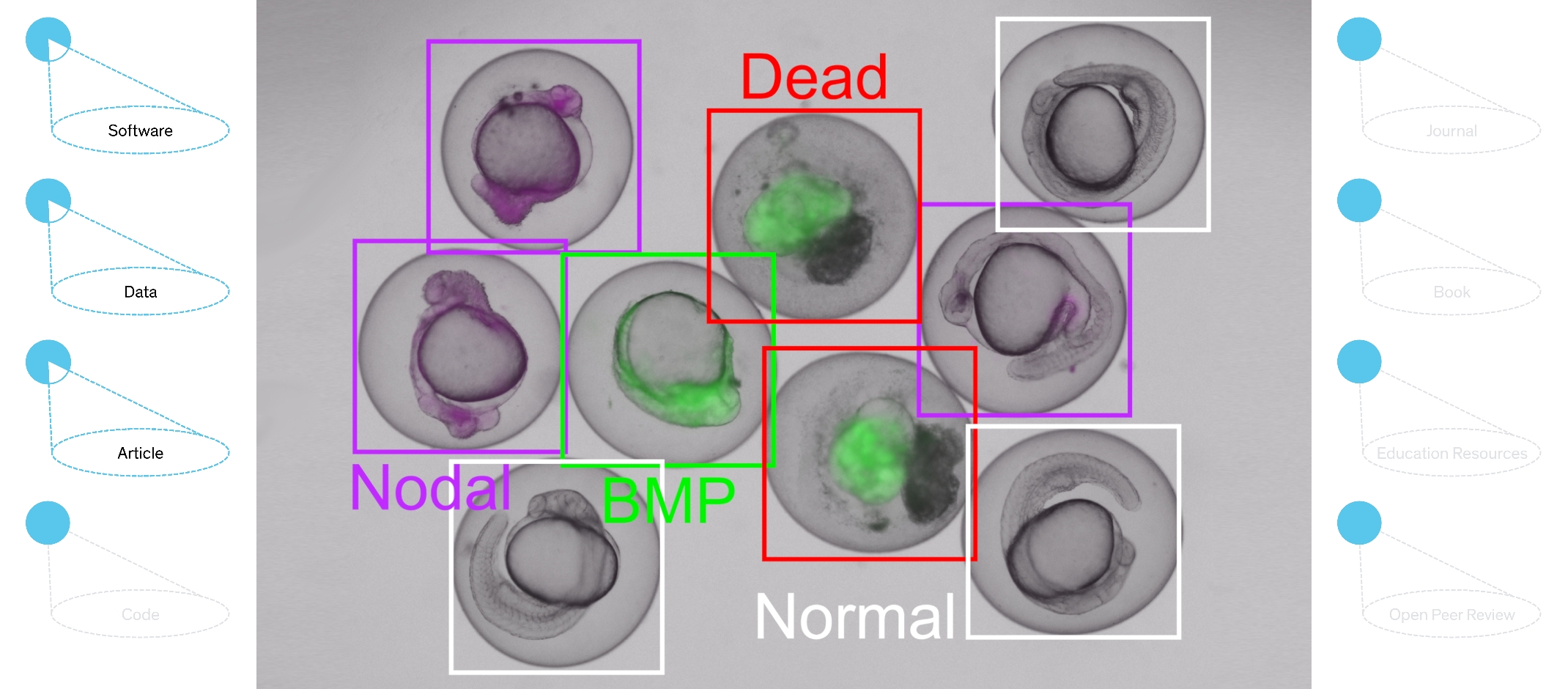EmbryoNet: automatic detection of developmental defects

Complex multicellular organisms can only emerge from fertilized eggs because embryonic development is biologically precisely regulated. Cellular communication through signaling pathways plays a crucial role in this context. If the activities of the signaling pathways are disturbed or interrupted, the embryo will show characteristic developmental defects.
The open source software EmbryoNet analyzes images and uses machine learning to automatically detect and classify such defects in animals. The classification can then be used to infer which signaling pathway was disturbed during embryonic development. Using zebrafish embryos as an example, the team of developers led by Patrick Müller, professor of developmental biology at the University of Konstanz, demonstrated that the software performs more effectively and precisely than human experts.
The open source software EmbryoNet is available for free download from the GitHub directory of Patrick Müller's research team. The developers also provide an installation file for download and use on Windows computers.
The training and test data for EmbryoNet (doi: 10.48606/15) are available for download on KonDATA.
The corresponding article about EmbryoNet appeared in Nature Methods (doi: 10.1038/s41592-023-01873-4) and is available for free on the Konstanz Online Publication System (KOPS).

